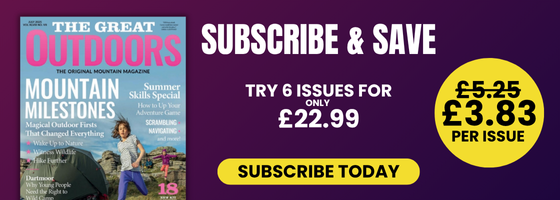Campaign for National Parks is calling for more to be done to enable everyone to access our National Parks, including the quarter of households who do not own a private car
In a new report, published today, the charity sets out the importance of everyone being able to access and benefit from the National Parks. National Parks for all: making car-free travel easier makes the case for improving sustainable travel options to open up the Parks to new visitors as well as reducing the ongoing environmental damage and considering what alternative solutions could be made available.
Ruth Bradshaw, Campaign for National Parks’ policy and research manager, and author of the report, explains “we know that currently 93% of visitors to National Parks travel by car and in some places high volumes of traffic can have a negative impact on the landscapes and wildlife, the very things that attract people to the Parks in the first place. But unfortunately the severe cuts to rural bus services in recent years have made it increasingly difficult to reach many parts of the Parks without a car.”
An example of some of the challenges people without cars face is the limited options for bus or coach journeys between the National Park visitor centres and major towns. In Exmoor National Park, for example, a return journey between Exeter and Dulverton, a distance of 29 miles, would involve a cost of £22 and two changes of bus each way. Unsurprisingly 96% of visitors to Exmoor arrive by car.
These journeys can also be impractical – for example, a journey from Leeds to the National Park Visitor Centre at Hawes, in the Yorkshire Dales, could take around four or five hours by bus.
The report also highlights that bus and rail services often do not run frequently enough, if at all, on Sundays and bank holidays – despite these days being some of the most popular for trips out to the UK’s wonderful landscapes.
“There is an urgent need to improve car-free access”
The report recognises the need for more funding to support public transport but focuses on making a number of other recommendations about how the situation can be improved. These include:
- National Park Authorities should take a strategic lead on improving sustainable access to their National Park;
- National Park Authorities and other relevant organisations should provide high-quality, consistent and up-to-date information on sustainable travel options;
- A ‘smarter travel National Park’ pilot should be set up to explore the potential for technological solutions such as integrated ticketing, e-bikes and app-based services as well as measures to reduce the levels of car use.
“There is a real sense of opportunity now with the potential to introduce new initiatives such as dockless bike hire and app-based shared transport to the wonderful landscapes of the Lake District, Snowdonia and all the other National Parks in England and Wales,” Ruth said.
“At a time when there is increasing recognition of the health and well-being benefits the Parks offer, there is an urgent need to improve car-free access. We want to make sure everyone can enjoy National Parks but in a way that does not undermine the special qualities of these beautiful areas.”
Read the full report here.
Image © Stewart Smith Photography / Shutterstock








